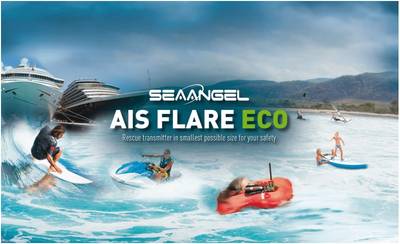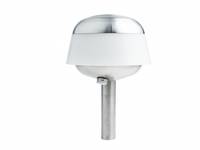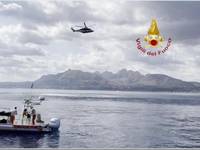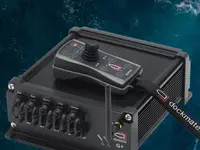Five Facts about the SEAANGEL AIS FLARE ECO
Five facts about the SEAANGEL AIS FLARE ECO, an AIS MOB device by FT-TEC USA Corp
Going out on the sea is fun and is one of the most favored recreational pastimes. With a pleasant day in mind, only few people are willing to consider the risks and hazards linked to this activity. This explains why most aquatic accidents happen in calm weather, close to the shore, probably even in the view of other people. Therefore, it should be easy to be rescued within a reasonable lapse of time. A person going overboard will not yet have drifted too far off even in strong currents.
However, this picture may have a flaw. In the U.S., there are 10 “unintentional drownings” a day. The typical victim is male, and 20 percent are children younger than 14 years old. So quick action is required and it makes a huge difference if the rescue teams know where to go or whether they have to “first find” the victim.
This is where the AIS technology comes into place. AIS MOB devices like the SEAANGEL SA15 AIS FLARE ECO, once activated, will transmit the emergency signal with the exact GPS position on internationally agreed upon frequencies that not only commercial ship crews are scanning permanently but also the U.S. Coast Guard and more and more recreational sailors. The chance of going unseen therefore is least in well-travelled areas and close to the shore. The U.S. Coast Guard is actually able to locate activated AIS beacons as far as 30 NM off shore because of the height up of the receiving antenna. Using helicopters (search height of 600 feet) and planes (search height of 2000 feet), this range increases up to 50 NM. Therefore, the chances for a quick rescue are very, very good for those who have such a device on the life vest, in the pocket or connected to their sports equipment.
The SEAANGEL SA15 AIS FLARE ECO stands out from essentially for two reasons. First, it is the worldwide smallest MOB device. Second, it is capable of transmitting data for more than 60 hours even after seven years and in the worst conditions. While this may not be of any use to someone drifting in cold water it will be very much appreciated by those drifting rudderless on their boat or on a life raft once they had to abandon their boat.
Further features are the integrated DSC functionality, which will cause the board radio to emit an alert, or if configured by its owner, also alert every other radio within reach. The device comes in a resistant casing, waterproof down to 50 m. The integrated flash light significantly enhances the rescue in the dark.
DSC (distress selective call) may be restricted in some areas but in case of emergency we believe the person should be rescued.
Wearing a helmet while riding on a bike has become a generally accepted idea. Wearing a life jacket equipped with an AIS beacon should be just as evident. After all, we all want to come home safely at the end of the day.
Conclusion
- Fact one: SEAANGEL provides an AIS emergency signal seen on all AIS chart plotters in range
- Fact two: SEAANGEL sends signal to U.S. Coast Guard, Police, Fire department and official receives your emergency signals as well on AIS frequency
- Fact three: First 15 minutes after accident may decides between dead or alive
- Fact four: No additional cost of registration fees
- Fact five: Worldwide smallest AIS BEACON with an unbeatable price
Where to buy: https://store7657257.ecwid.com/





